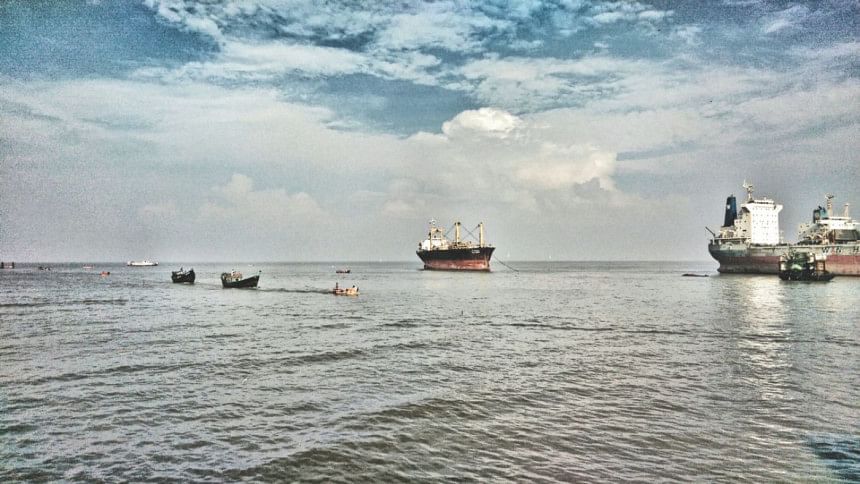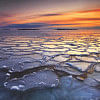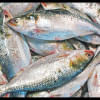Blue Economy - Are we ready for it?

Blue economy means extraction of the resources of sea for the growth of an economy. Bangladesh has settled maritime boundary disputes with Myanmar in 2012 and with India in 2014 through an arbitral method. It is estimated that Bangladesh has acquired 118,813 square kilometres of the Bay of Bengal. The areas of resources include 200 nautical miles of exclusive economic zone and over 354 nautical miles of resources on seabed (continental shelf). It is estimated that the resources from the sea of Bangladesh constitute 81 percent of the resources existing in its land territory.
Within the jurisdiction of Bangladesh, the sea is endowed with immense and precious natural resources, living and non-living. Experts say that fish alone has 500 varieties besides snails, shell-fish, crabs, sharks, octopuses and other animals. Bangladesh is estimated to catch only 0.70 million tons of fish every year out of the total 8 million tons of fish available in the Bay of Bengal.
Besides fish and other living animals, Bangladesh could also have gas fields as it is reported that Myanmar has discovered a large gas field on its area of the sea. Experts are of the view that Bangladesh would be able to extract resources worth about Tk 12,000 crore (1.2 billion dollar).
According to experts, the silt on the adjacent sea area in Bangladesh contains valuable minerals such as uranium and thorium besides a large number of "clay" which constitutes raw materials of cement. Experts believe that there exist 13 heavy mineral-rich silts in the adjacent sea areas of Bangladesh, such as ilmenite, garnet, colemanite, zircon, retile, and magnetite which, according to them, are more valuable than gold. The sale of these minerals could earn billions of dollars for Bangladesh. It is reported that the country has 75 outer-islands which could be utilised for tourists both local and foreign. If Bangladesh can explore and exploit these resources through the use of appropriate technology, the economy of Bangladesh can grow rapidly into an advanced one. Although the government of Bangladesh has leased out some areas of Bay of Bengal to foreign companies, it is believed that they are not using expensive modern machinery to extract the resources.
There is one important factor to consider for Bangladesh: that is, with the increase of the population of the country, it would be gradually more dependable on sea resources than those in the landmass. The resources include endless renewable reserves in wind and solar energy.
It is worthwhile to mention that 15 percent of the protein is provided from sea resources for the people across the world. Natural gas and oil constitute 30 percent of the sea resources and over 50 percent of magnesium is extracted globally from the seas. Even life-saving medicines could also be obtainable from these resources.
Given the possibility of acquisition of wealth from sea, Bangladesh is required to develop policies and laws to strengthen national institutions which could deliver solutions to implement its Sustainable Development Goals, i.e. evaluation of goals must go beyond measurement, to consider whether progress is equitable, relevant and sustainable.
It is significant to note that Bangladesh's trade is carried out mainly through the sea and that a USD-45-billion trade is possible for Bangladesh. It is estimated that 5 percent of the country's GDP could be acquired by 2030 from the resources of the sea. Bangladesh could be a developed country by 2041 if the resources are properly extracted and adequately used. It is reported that Indonesia's national economy depends largely on its sea resources and Australia is reported to have earned USD 44 billion from sea.
In 2015, a resolution proposed by Bangladesh was adopted by the General Assembly of the UN for sustainable development, and its purpose was directed at achieving 17-point economic growth by 2030, of which 14 points were contemplated from the perspective of blue economy. During the last few years, blue economy was the central topic of many international conferences. The Rio+20 Conference on the seas, and the conference at Bali (Indonesia) for the food security and growth of blue economy could be cited as examples. The strategy of the international organisations such as the World Bank and the UN Environmental Organisation is acquisition of sea resources.
Sea resources offer a new window of opportunity for Bangladesh. An increasing knowledge of the seas including the impact of wind, waves, high tide and ebb tide, change of temperature of the living organisms, and increase of salinity on the surface of seas could lead to sources of renewable energy. Every year, the use of wind from the seas is increasing by 40 percent and Bangladesh could use wind power for various purposes to strengthen its economy.
To feed the people from the sea resources, Bangladesh is required to push policies in cooperation with other countries to protect the ocean from the effects of climate change, pollution and over-fishing. We need to preserve the ecosystems of the seas which are reportedly being degraded at an unprecedented rate, and this is not an issue only for Bangladesh. It should be addressed in cooperation with other countries.
Many experts suggest that the government of Bangladesh should create an organisation to acquire the resources of the sea as quickly as possible as there is an unlimited scope of opportunity to extract these resources. Bangladesh can get inspiration from the fact that at present, the economy of the world is estimated to be USD 88 trillion, of which USD 24 trillion is acquired from sea resources. By 2050, it is estimated that the population of the world would be 900 crores (9 billion) and they would be fed largely from sea resources.
Barrister Harun ur Rashid is a former Bangladeshi ambassador to the UN, Geneva.










Comments